★★
“Not so great…”
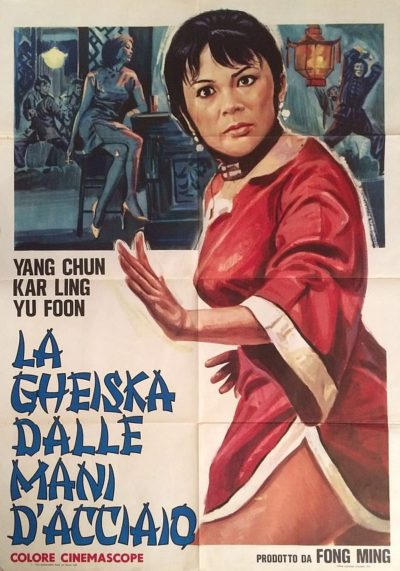 I’m just going to begin by quoting the opening credit titles. Spelling, grammar and punctuation as received. “At the early stage of Republic of China, Yuan Hsi Hai wanted to rebel the democratic government & be the king. But there were 300,000 soldiers at Yuan Wan under the command of General Tsai obstructed his desire, so he cheated General Tsai to Peking & confined his movements. So Yuan who lived in Chu Jen Hall could fulfil his ambition but…” I reproduce this because, to a large extent, that’s everything I’ve got in terms of the over-arching plot here. It’s all about Tsai (Kwan) getting out of the city, in order to lead his troops and, presumably, frustrate Yuan’s dictatorial ambitions.
I’m just going to begin by quoting the opening credit titles. Spelling, grammar and punctuation as received. “At the early stage of Republic of China, Yuan Hsi Hai wanted to rebel the democratic government & be the king. But there were 300,000 soldiers at Yuan Wan under the command of General Tsai obstructed his desire, so he cheated General Tsai to Peking & confined his movements. So Yuan who lived in Chu Jen Hall could fulfil his ambition but…” I reproduce this because, to a large extent, that’s everything I’ve got in terms of the over-arching plot here. It’s all about Tsai (Kwan) getting out of the city, in order to lead his troops and, presumably, frustrate Yuan’s dictatorial ambitions.
Key to this is Peking Opera star Hsiao Yu (Lee), who is hired by Yuan’s men to keep an eye on the General. However, she’s not as loyal as her employer would hope, and she gradually becomes attached to and involved with Tsai. This eventually results in her helping him to escape the house arrest under which he has been placed. I believe this to be true with… let’s say 90% confidence. There does appear to be other stuff going on: none of it is able to make it through the terrible presentation, and out the other side, to provide details which I prepared to commit to the keyboard. It’s kinda clear why Lee’s Queen Boxer made it out in the West, and this didn’t, even though both were made around the same time.
This did rather well at Taiwan’s 1973 Golden Horse awards, winning Best Film, Leading Actor, Screenplay and a special award for “Outstanding Performance” going to Lee (she lost Best Leading Actress to Hsiao-Lao Lin in A Heroic Fight). All I can say is, it must have been a very slow year in cinema, for this largely plodding and uninteresting history-political drama to have triumphed. Though, again, the presentation does it no justice. For example, there’s one scene where Tsai is repeatedly writing something in large letters on paper. It’s clearly very important to him. Unfortunately, the subtitles – as ever, intended for a Chinese audience, not a Western one – don’t bother to translate it. So its significance is entirely lost.
Lee is about the only reason to watch this, and the film definitely goes up a gear whenever she’s on screen. Her background actually was in the Peking Opera, making this right in her wheel-house. The director – and some sources also credit both Kwan and Florence Yu Fung-Chi – wisely lets her talent shine through, and it’s a no-nonsense approach that works. Witness, for example, the casual way, she shoves a victim out of the way with her feet, after crushing his larynx. But one of the problems is, I honestly couldn’t tell you who’s she’s fighting at the end, or why, since the General has already escaped. It’s just another element lost in translation here, like so many others, and leaves this an underwhelming entity, in the only form available.
Dir: Min-Hsiung Wu
Star: Judy Lee, Peter Yang Kwan, Lee Hung, Cheung Kwong-Chiu





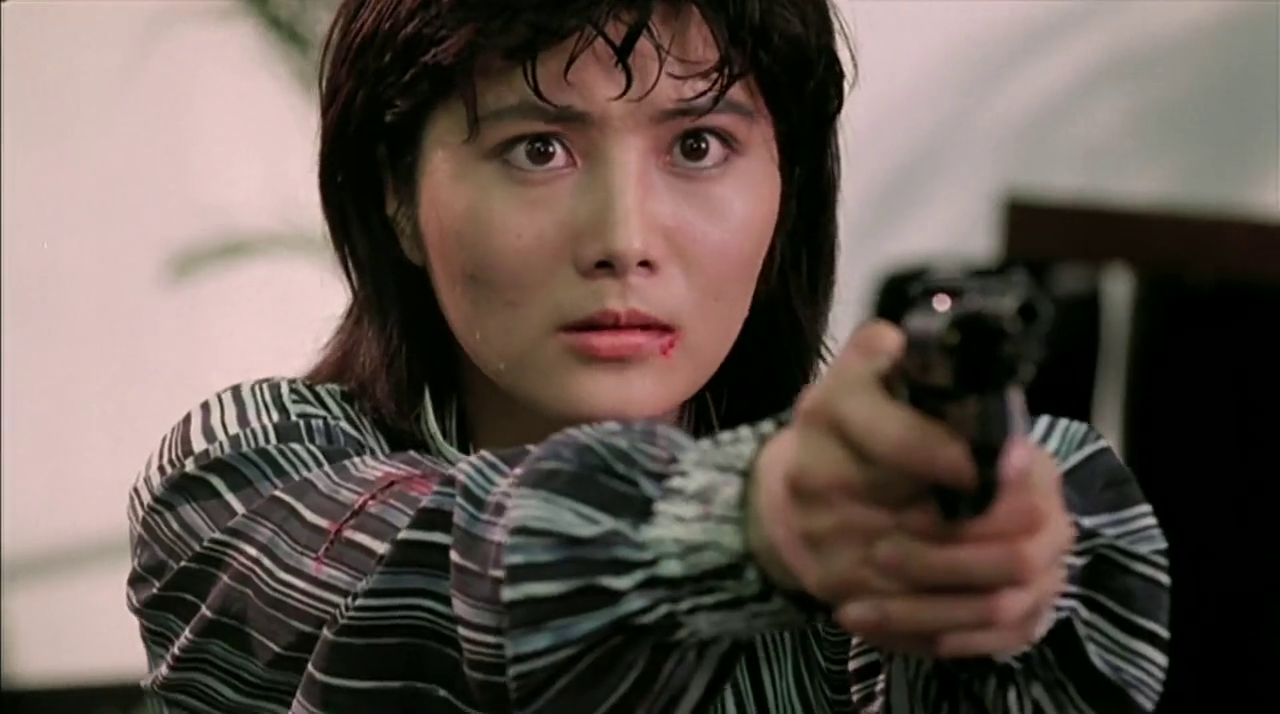 ★★★★½
★★★★½ Back in the early nineties, I saw a double-bill of this and Jackie Chan’s Police Story at the late, lamented Scala Cinema in London, and it blew my mind. I had literally never seen anything like them before. The only martial arts movies I’d watched previously were crappy American ones, which made little or no impression. That afternoon changed my life, and awakened a love of the genre that persists to this day. But would In the Line of Duty 4 stand the test of time? There are certainly movies I loved from the same era, which are now a bit cringe, to put it mildly. So it was with some trepidation that I hit play…
Back in the early nineties, I saw a double-bill of this and Jackie Chan’s Police Story at the late, lamented Scala Cinema in London, and it blew my mind. I had literally never seen anything like them before. The only martial arts movies I’d watched previously were crappy American ones, which made little or no impression. That afternoon changed my life, and awakened a love of the genre that persists to this day. But would In the Line of Duty 4 stand the test of time? There are certainly movies I loved from the same era, which are now a bit cringe, to put it mildly. So it was with some trepidation that I hit play…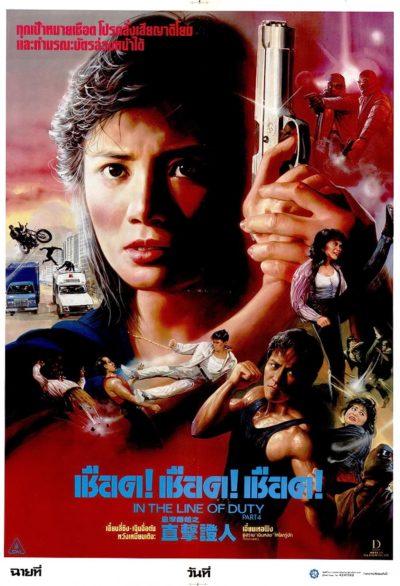 For when all is said and done, the fights are flat-out awesome. It’s not just Khan and Yen, though they obviously get most to do. Everyone here is well up to the task, both showing off their own stuff and letting the stars look good by selling for them. On the female front, I want to give special praise to Farlie Ruth Kordica, who fights Cynthia around a lift-shaft in another sequence which feels disturbingly life-threatening. She only appeared in a couple of other films, which feels like a real shame, based on her performance here. It’s a wonderfully inventive scene (bottom), taking full advantage of the potential in the environment.
For when all is said and done, the fights are flat-out awesome. It’s not just Khan and Yen, though they obviously get most to do. Everyone here is well up to the task, both showing off their own stuff and letting the stars look good by selling for them. On the female front, I want to give special praise to Farlie Ruth Kordica, who fights Cynthia around a lift-shaft in another sequence which feels disturbingly life-threatening. She only appeared in a couple of other films, which feels like a real shame, based on her performance here. It’s a wonderfully inventive scene (bottom), taking full advantage of the potential in the environment. 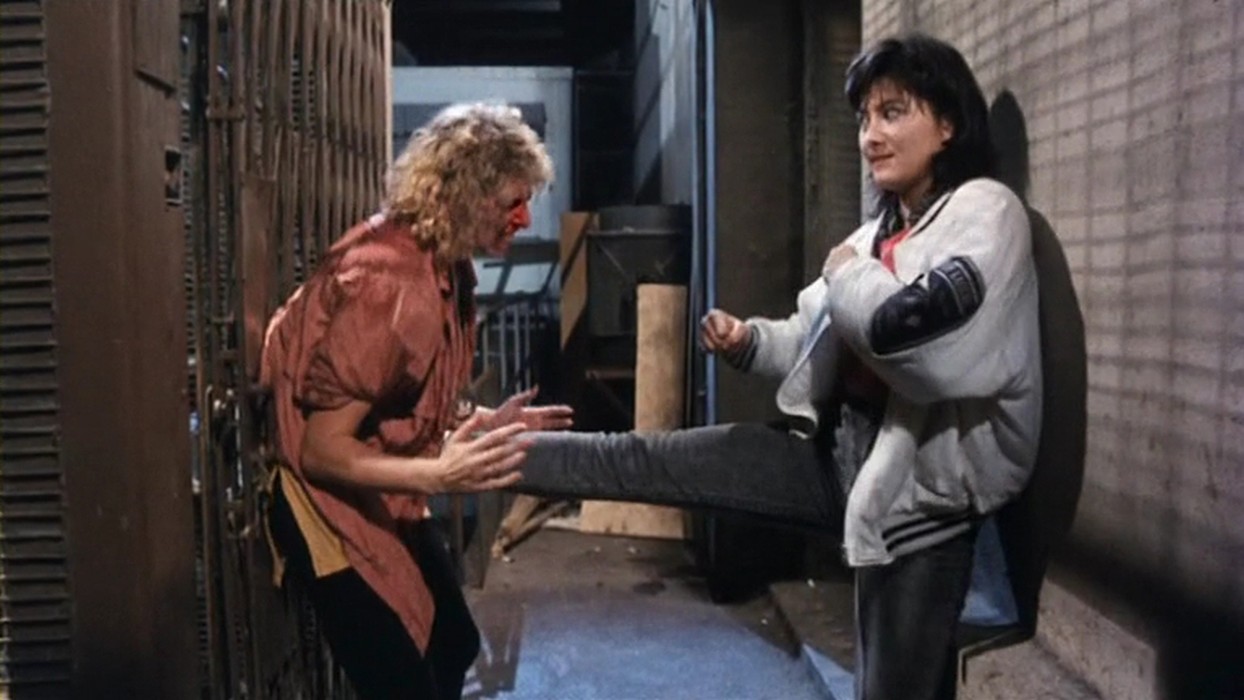
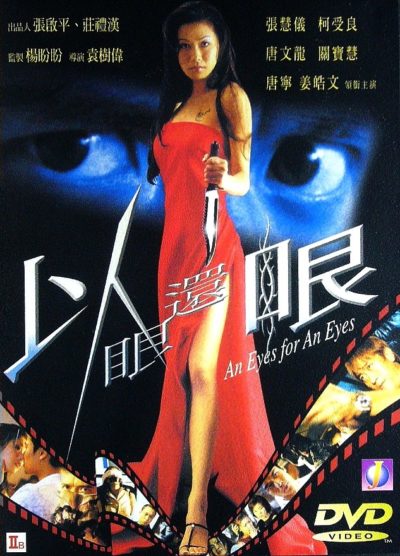 This opens with a scene that is almost a direct life from the similarly titled
This opens with a scene that is almost a direct life from the similarly titled 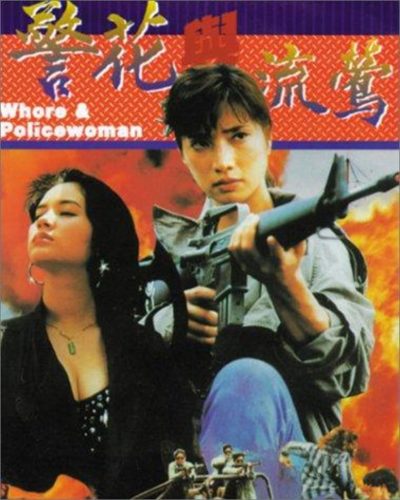 If the title is more than a bit blunt, it’s certainly accurate. May Lin (Cheng) is a brash hooker, who runs a sideline in blackmail videos with her flatmate, Nana. But one night she comes home to find Nana near death, the victim of a brutal client. She tells the police about the video, but before she can give it to them, the perpetrator – rich and influential politician, Kao Tien Chin (Cho) – sends an army of beige trenchcoat wearing killers to take care of both Nana and May. The former succumbs, but the latter escapes and goes on the run. With the police force apparently leaking like a sieve and the case being shut down from on high, prosecutor Yin Li Shan sends his niece, Nancy Cheng (Mishiwaki), to link up with May and bring her in. But they’ll have to get past the trenchcoat mafia, among other threats, for there to be any hope of justice.
If the title is more than a bit blunt, it’s certainly accurate. May Lin (Cheng) is a brash hooker, who runs a sideline in blackmail videos with her flatmate, Nana. But one night she comes home to find Nana near death, the victim of a brutal client. She tells the police about the video, but before she can give it to them, the perpetrator – rich and influential politician, Kao Tien Chin (Cho) – sends an army of beige trenchcoat wearing killers to take care of both Nana and May. The former succumbs, but the latter escapes and goes on the run. With the police force apparently leaking like a sieve and the case being shut down from on high, prosecutor Yin Li Shan sends his niece, Nancy Cheng (Mishiwaki), to link up with May and bring her in. But they’ll have to get past the trenchcoat mafia, among other threats, for there to be any hope of justice.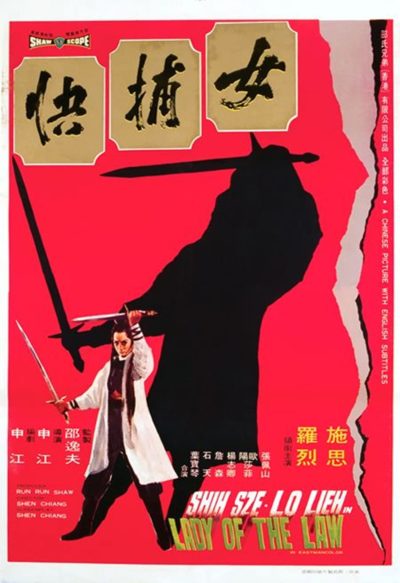 I kept moving between 2½ and 3 stars for this. It is pretty chatty, and the focus is not as much on the title character as I might have hoped. But there’s no denying that Leng (Shi) is a very solid character, and when she gets her chances to shine, does so in a memorable fashion. This is nowhere better illustrated than her final battle, where she takes on an enemy – who just tried to molest Leng, believing her drugged – while they both balance on a tight-rope. There’s no particular reason for the fight to take place in such an environment. The ground would have been perfectly fine. But it adds an extra dimension, and the way it’s filmed makes it feel surprisingly possible that they were wobbling about up there.
I kept moving between 2½ and 3 stars for this. It is pretty chatty, and the focus is not as much on the title character as I might have hoped. But there’s no denying that Leng (Shi) is a very solid character, and when she gets her chances to shine, does so in a memorable fashion. This is nowhere better illustrated than her final battle, where she takes on an enemy – who just tried to molest Leng, believing her drugged – while they both balance on a tight-rope. There’s no particular reason for the fight to take place in such an environment. The ground would have been perfectly fine. But it adds an extra dimension, and the way it’s filmed makes it feel surprisingly possible that they were wobbling about up there.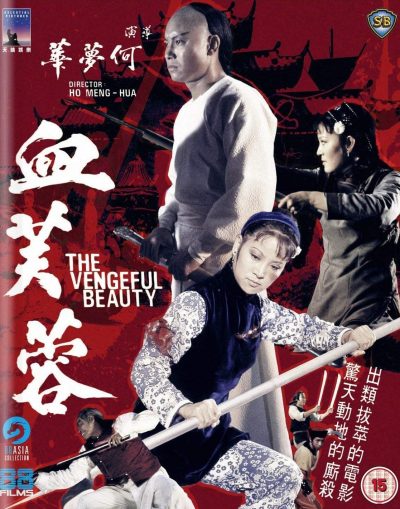
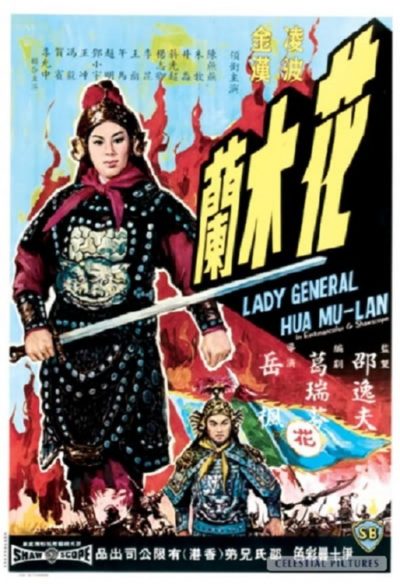 I probably should have done a bit more research before adding this to the list of versions for review here. I saw a sixties movie made by Shaw Brothers with that title, and presumed there would be kung-fu. Boy, was I wrong. There’s about one significant scene, which pits Mulan (Po) and some of her new army colleagues against each other. And that’s it. Oh, there is a battle between Imperial and invading forces. This might have contained some action, but was so poorly photographed – mostly due to incredibly bad lighting – that it was impossible to tell. What there was, instead, was singing.
I probably should have done a bit more research before adding this to the list of versions for review here. I saw a sixties movie made by Shaw Brothers with that title, and presumed there would be kung-fu. Boy, was I wrong. There’s about one significant scene, which pits Mulan (Po) and some of her new army colleagues against each other. And that’s it. Oh, there is a battle between Imperial and invading forces. This might have contained some action, but was so poorly photographed – mostly due to incredibly bad lighting – that it was impossible to tell. What there was, instead, was singing. This is a painfully lazy knock-off of a certain, well-known action film, in which terrorists take hostages in a multi-storey building over the festive season. This action is as cover for their actual goal, which is the robbery of a well-secured vault. But one of the inhabitants evades the initial surge, and begins to run interference. They get help and moral support over the airwaves by someone on the outside, and use the air-ducts in the building to avoid detection. Yeah. It’s like that, and you’ll probably understand why my eyes were rolling when we get the line, “Ho-ho-ho, motherfucker.” Now, there’s no doubt the makers openly acknowledge their inspiration. But pleading guilty doesn’t get you out of the crime. At least other, similarly inspired movies, e.g.
This is a painfully lazy knock-off of a certain, well-known action film, in which terrorists take hostages in a multi-storey building over the festive season. This action is as cover for their actual goal, which is the robbery of a well-secured vault. But one of the inhabitants evades the initial surge, and begins to run interference. They get help and moral support over the airwaves by someone on the outside, and use the air-ducts in the building to avoid detection. Yeah. It’s like that, and you’ll probably understand why my eyes were rolling when we get the line, “Ho-ho-ho, motherfucker.” Now, there’s no doubt the makers openly acknowledge their inspiration. But pleading guilty doesn’t get you out of the crime. At least other, similarly inspired movies, e.g.  The title is the English translation of “karate,” yet seems oddly appropriate for a film which barely clears the necessary quota of action to qualify for this site. I can’t say I felt my time was wasted, as such. Yet if you’re looking for a plethora of martial arts, you’ll be disappointed, despite the poster and a story which certainly could have gone in a much more action-oriented direction.
The title is the English translation of “karate,” yet seems oddly appropriate for a film which barely clears the necessary quota of action to qualify for this site. I can’t say I felt my time was wasted, as such. Yet if you’re looking for a plethora of martial arts, you’ll be disappointed, despite the poster and a story which certainly could have gone in a much more action-oriented direction.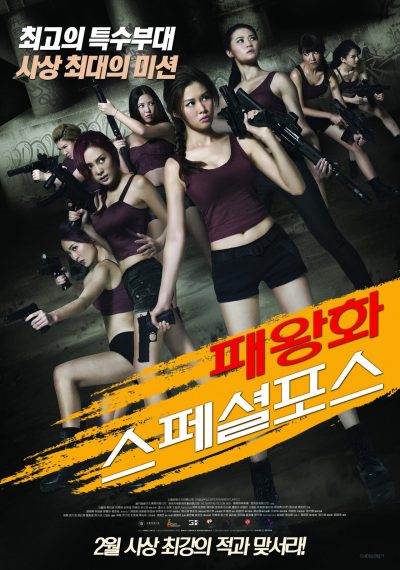 I’m not sure how much this is an official remake of The Inspector Wears Skirts, the 1988 franchise-launching action comedy which we covered earlier this month. It is certainly very close in both content and tone, but I’ve not seen a formal acknowledgement of this from anyone involved. While I’m obviously happy to see a reboot of one of the pioneers of the Hong Kong girls-with-guns genre, I just wish they hadn’t also rebooted the weaknesses as well as the strengths. In particular, they could have left all of the lame comedy in the eighties, and I’d have had no complaints at all.
I’m not sure how much this is an official remake of The Inspector Wears Skirts, the 1988 franchise-launching action comedy which we covered earlier this month. It is certainly very close in both content and tone, but I’ve not seen a formal acknowledgement of this from anyone involved. While I’m obviously happy to see a reboot of one of the pioneers of the Hong Kong girls-with-guns genre, I just wish they hadn’t also rebooted the weaknesses as well as the strengths. In particular, they could have left all of the lame comedy in the eighties, and I’d have had no complaints at all.













